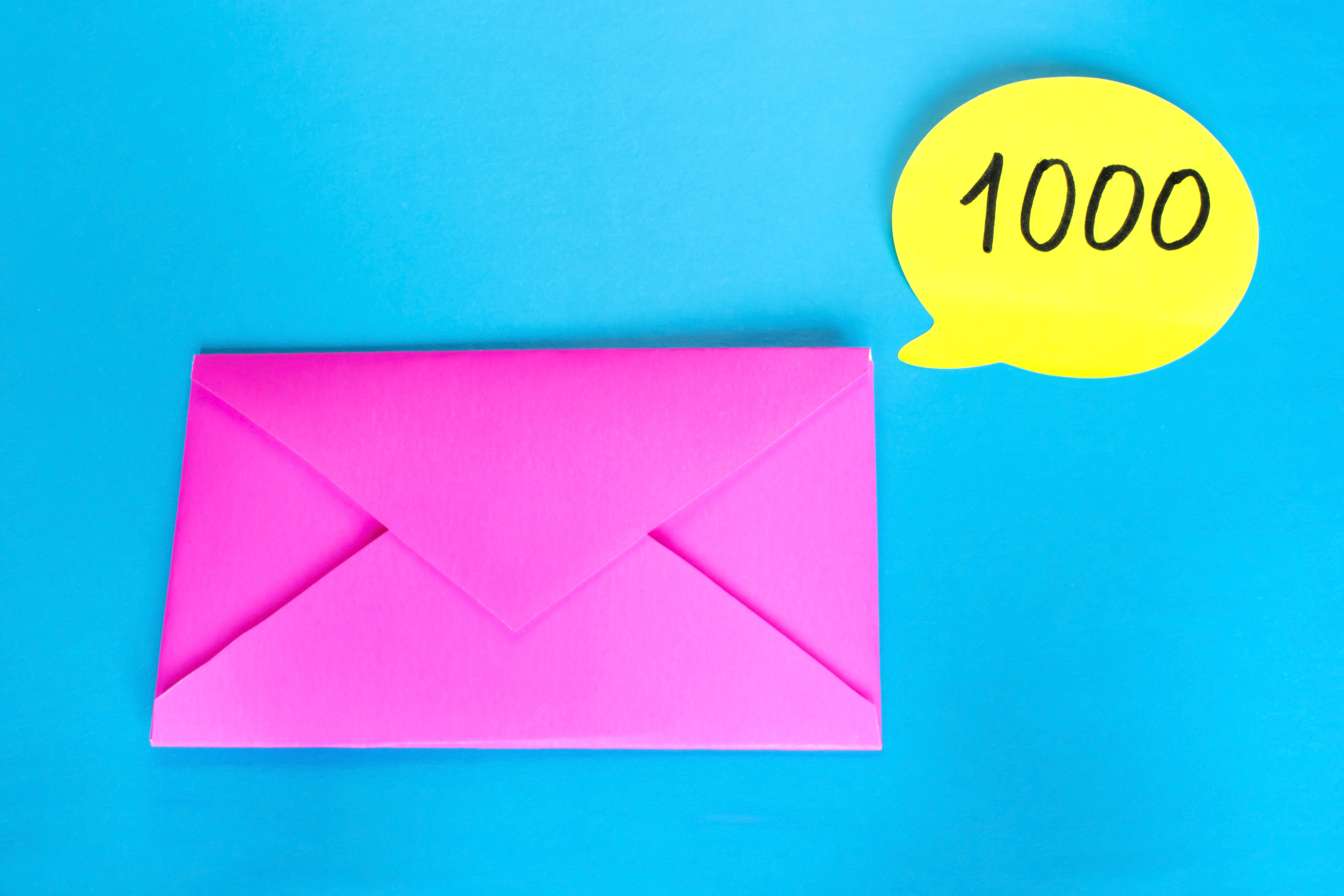Imagine this: You arrive at the office early Monday morning expecting an inbox with a dozen or so urgent, unanswered emails. You sit down, take a deep breath, and open your computer, only to find even more messages than you had anticipated. Your work week is already off to a stressful start. Unfortunately, that experience is all too common.
Email has become an almost unavoidable, and stressful, form of communication. From navigating etiquette to managing an ever-growing inbox, we are often left feeling tense and overwhelmed by the time and energy it takes to craft and organize messages. Although there are obvious benefits to email, a Pew Research Center report detailing the experiences of professionals in the United States found that, for many, email divides attention, hinders downtime from work, and significantly increases workload.
Hyperconnectivity is now the norm — an estimated 4.4 billion people will use email by 2023. But we don’t need to accept its ability to overpower us. Instead, we need to take ownership of it so we can avoid email anxiety, and the burnout that can follow.
Set clear boundaries and expectations
It can be frustrating to receive after-hours emails that cause stress when you receive them, but which don’t necessarily apply to your role or responsibilities. To make the most of your time, as well as that of your colleagues, set clear guidelines for your team around when you read and reply to emails. Perhaps you don’t want or need to check your email over the weekend (it’s an excellent tactic, if your job permits it, to take that time to rest and recharge) — let your team know that they shouldn’t expect a reply until Monday. If you like to stay offline right after you leave, but then will use some downtime after dinner to parse through any remaining emails, let your team know that. Evaluate what works best for your schedule and lifestyle choices, and don’t shy away from sharing your expectations with your counterparts — that way, there will be no confusion or feelings of guilt when you choose to step away from your inbox.
Make emails a part of your schedule, not items on your to-do list
Try blocking time on your calendar specifically for checking and writing emails. Not only will this ensure that you actually get them done, but it will also help you avoid distraction. Checking your email throughout the day when you should be focused on other tasks can limit your productivity and ability to engage in deep work. Coined by Cal Newport, a professor of computer science at Georgetown University, and the focus of his most recent book, “deep work” is when we give our undivided attention to a particular task and overcome the lure of “hyperactive digital distraction and onerous administrative burdens.” By setting aside 15-minute increments to check emails at natural points throughout your work day, you can avoid the inevitable distractions of multitasking and get through your tasks in an organized way.
Consider face-to-face communication
Before sending an email to a colleague, take a moment to consider the context and content of your message. Is it an appropriate time to reach out, or should you wait until the following day? Does your question or idea truly warrant an email, or can you speak to the recipient face to face? While it might be easier to draft a few sentences and quickly press send, consider if your email could actually be expressed in conversation. Face-to-face communication can help build a collaborative environment, minimize the risk of miscommunication, and build stronger work relationships. Plus, it can help your co-workers stay on top of their inboxes, too. Encourage others to follow this practice, and work together to build a workplace culture that values in-person collaboration, and avoids overloaded inboxes.
With a little bit of courtesy and a willingness to set boundaries, your email no longer needs to feel like an enemy. By scheduling strategically and thinking about other forms of communication, you can help yourself — as well as your colleagues — rethink email’s role in the workplace.
Follow us here and subscribe here for all the latest news on how you can keep Thriving.
Stay up to date or catch-up on all our podcasts with Arianna Huffington here.


